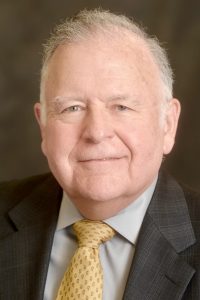By Colleen Callahan
Record-breaking heat and scorching summer wildfires are signs of a hotter California. As part of efforts to further knowledge and action on climate change, the UCLA Luskin Center for Innovation (LCI) is part of two winning partnership grants ─ totaling more than $4 million ─ awarded by California’s Strategic Growth Council.
The Council’s new and competitive Climate Change Research Program is part of California Climate Investments, a statewide initiative that is putting billions of cap-and-trade dollars to work reducing greenhouse gas emissions, strengthening the economy, and improving public health and the environment. Both grants will benefit disadvantaged communities in particular.
Measuring the Impacts of Climate Change on Vulnerable Communities to Design and Target Protective Policies
A nearly $1.5-million grant led by LCI involves multiple studies of heat-related climate impacts, as well as factors that make populations and communities vulnerable, plus opportunities to build resilience. Climate change could exacerbate existing inequities, and LCI will develop tools to help government agencies target responses and empower communities.
“The goal is to increase the climate resilience of California’s vulnerable communities in the face of rapidly increasing extreme heat events,” said JR DeShazo, the grant’s principal investigator and LCI director.
The researchers include R. Jisung Park, an LCI scholar and an assistant professor of public policy and environmental health sciences at UCLA Luskin, who will assess climate change impacts on low-income workers. Gregory Pierce, associate director of research at LCI, will assess the climate risk of vulnerable built environments — including affordable housing — to better inform protective policies.
Collaborations with government agencies, nonprofit organizations and community leaders will be integral to the work. For example, civic partners will oversee the development of geographic tools to identify areas disproportionately affected by heat-related climate change and vulnerability factors. Stakeholders will also be able to identify policies, funding and other opportunities to increase resilience in vulnerable areas and among vulnerable populations such as low-income workers and residents.
The analysis of resilience opportunities will also be collaborative. A partnership with the Liberty Hill Foundation and community-based organizations will test a coordinated outreach pilot called Opportunity Communities to promote clean and affordable energy, transportation and associated financial assistance for low-income households. Researchers will assess the effectiveness of this strategy to build financial and health resilience to climate change impacts.
Climate Smart Communities Consortium
A partnership grant led by UC Davis and the UC Institute of Transportation Studies will also involve LCI. This $2.6-million grant to a multifaceted group of researchers from seven academic institutions will tackle the challenge of transportation-related environmental impacts, which fall disproportionately on low-income communities of color. Researchers will seek solutions that reduce emissions and improve the mobility and quality of life for California’s most vulnerable communities.
LCI will collaboratively study interrelated areas of innovative mobility, electrification and freight movement, using equity and policy engagement lenses as crosscutting themes. Research will center on regional case study initiatives and statewide initiatives to demonstrate findings.
The Strategic Growth Council brings together multiple agencies and departments to support sustainable communities emphasizing strong economies, social equity and environmental stewardship. For updates during implementation of the latest grants, see LCI’s climate action program at innovation.luskin.ucla.edu/climate.

